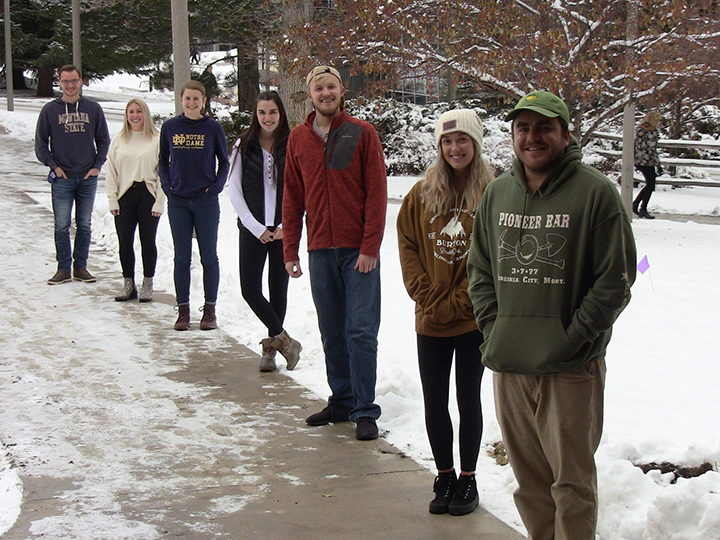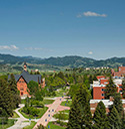Hospitality Management
The Hospitality Management program at Montana State University prepares students to become skilled professionals within the expanding local, regional, national and global hospitality industries. Students, choosing from one of two degree options (Lodging and Facilities Management or Restaurant Management: Farm-to-Table) engage in an interdisciplinary and experiential curriculum. The curriculum draws from course work in food and nutrition, culinary arts, business, and agriculture as well as hospitality-specific course work emphasizing sustainability and quality customer service across the hospitality industry. Both options have practicum courses for skill development and field-based courses that integrate problem-based learning and service learning through community engagement. Additionally, both options include internships to ensure that graduates have sufficient practical experience to be prepared and competitive for job placement.

HTR 475 Integrative Hospitality Simulation class
Lodging and Facilities Management Option
The Lodging and Facilities Management option is focused on the management of hotel, lodging or other types of facilities. Graduates will find employment across a wide variety of lodging opportunities including independently owned hotels, chain hotels, rural inns, B&Bs, and guest ranches. They will also find prospects within sports and recreation facilities, health centers, spas, private sports clubs or leagues, community recreation programs, and workplace or corporate health and fitness programs. Graduates may also choose an entrepreneurial path, launching their own lodging enterprise. The curriculum utilizes existing course work in business, overlapping with the Restaurant Management: Farm-to-Table option course work--as many fitness facilities also include a foodservice operation (coffee, juice bar, nutritional products, etc.). Course work specific to lodging operations, sustainability in the hospitality industry, rural hospitality, supervision and customer service and event planning are central to this option. This option also includes junior-level and senior-level internships operating and managing lodging and other facilities matching the student’s career interests.
Restaurant Management: Farm-to-Table Option
The Restaurant Management: Farm-to-Table option is focused on management of restaurant enterprises with an emphasis on farm-to-table sourcing and healthful cuisine. Graduates will find employment as foodservice and restaurant managers or as entrepreneurs launching their own restaurant or foodservice enterprise. This option is also tied to the provision of foodservices in healthcare facilities (hospitals, assisted living and retirement homes) and other institutions such as schools, workplaces, colleges/universities, and more. The curriculum includes hospitality- specific courses and draws from courses in sustainable food systems, food and nutrition, culinary arts, and business. Practicum courses are in foodservice systems management, quantity food preparation, and hyperlocal food production at Towne’s Harvest Garden, MSU’s organic campus farm. This option also includes restaurant/foodservice management internships.
Faculty


Wenhao Zhang, PhD

Coleen R. Kaiser, MS, RDN, LN
Tina RobinsonRevenue ManagerInnVentures
Non-Tenure Track Instructor

















